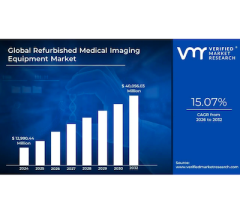
Getty Images
October 10, 2023 — The Centers for Medicare and Medicaid Services (CMS) announced Oct. 6 new guidance in response to the August ruling in Texas Medical Association v. United States Department of Health and Human Services (“TMA III”) that vacated several provisions of the existing No Surprises Act (NSA) regulations.
In a press statement issued by The American College of Radiology (ACR), the organizations including ACR, American College of Emergency Physicians (ACEP), American Society of Anesthesiologists (ASA), Emergency Department Practice Management Association (EDPMA) and the Radiology Business Management Association (RBMA), are strongly opposed to this newest guidance, which further broadens the already significant discretion health plans had on how they may calculate qualifying payment amounts (QPAs) under the NSA’s original implementation. In the announcement, the departments state that no additional guidance is expected to be provided to health plans about how to calculate the QPA and, instead, simply leaves insurers the discretion to calculate QPAs using their own “good faith” interpretation of the TMA III ruling and remaining regulations.
As well, the departments stated they will provide only very limited enforcement for health plans on QPA calculation issues until at least May 1, 2024, if not to Nov. 1, 2024. Our organizations are very concerned about this delay in full enforcement. There is already lax enforcement of insurer compliance with the NSA’s requirements, including the fact that many plans are seemingly being allowed to delay payment to physicians (or simply not pay at all) following an independent dispute resolution ruling, without any consequences imposed by the Departments. This newest announcement providing insurers with significant enforcement relief on the QPA further erodes the critical foundations Congress built into the NSA when it passed these important consumer protections into law and seems contrary to the federal court order which stated that this could be done expeditiously.
Further, we are concerned that the departments are providing no instructions to certified IDR entities on how to evaluate QPAs that are calculated based on the methodology that was invalidated by the district court decision. Together, these troubling policies will lead to additional burdens on the IDR process as providers continue to seek remedy for unreasonably low payments from insurers, and certified IDR entities struggle to make determinations in light of the TMA III decision without any additional information.
We ask that the departments immediately re-consider this decision and promptly issue specific guidance on health plan obligations to calculate QPAs in line with the federal district court ruling and issue additional instructions to certified IDR entities on how to evaluate QPAs that are based on an invalidated methodology.
Our organizations are also concerned about the details of the partial re-opening of the federal independent dispute resolution (IDR) portal. Prior to this, the portal was closed to otherwise eligible disputes that had not been initiated by Aug. 3, 2023. While we are pleased that single determinations for eligible disputes are now permitted, we are discouraged that batched determinations continue to be in a holding pattern following the earlier TMA IV ruling. Without any improved guidance on batching, the administrative efficiencies that come from being able to batch disputes will not be realized, thereby increasing costs for physician practices, while causing the current backlog of unresolved disputes to continue to grow.
We urge the departments to quickly re-open the portal to batched determinations and concurrently provide effective guidance to all affected parties.
For more information: www.acr.org


 February 17, 2026
February 17, 2026 









